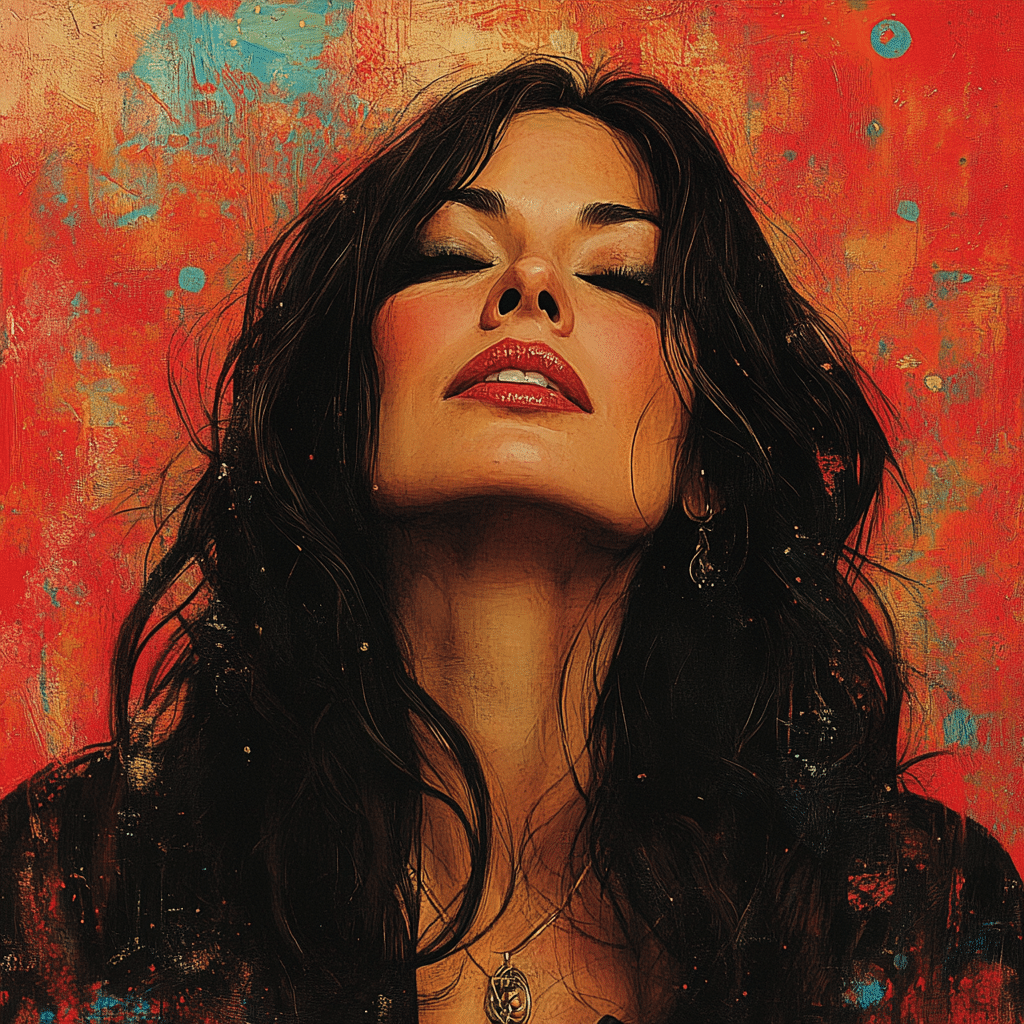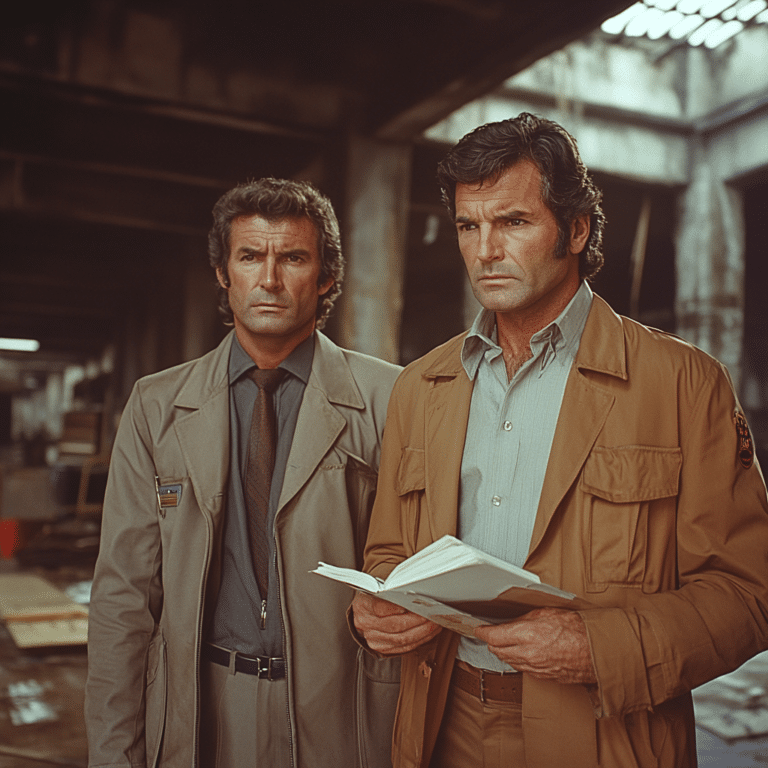Alanis Morissette’s “You Oughta Know” is not just another song; it’s a powerful anthem that captured hearts and minds in the 1990s and has continued resonating to this day. Emerging from her tumultuous experiences, Morissette’s journey from Canadian pop sensation to the grunge powerhouse we recognize today speaks volumes about the spirit of an era. The story of “You Oughta Know” reflects a deep-rooted sense of betrayal and heartache, echoing through generations and evoking spirited discussions, especially in today’s climate where personal authenticity reigns supreme.
At the heart of this iconic song lies Alanis Morissette’s personal narrative. After a promising start as a dance-pop artist, her transition into rock was marked by intense revelations and inspiration. Morissette had signed a song-publishing deal at the tender age of 14 and released two albums before hitting it big with Jagged Little Pill in 1995. Having struck a chord with many, it’s no wonder that “You Oughta Know” became an involuntary therapy session for countless listeners, where they could find solace in similar experiences of heartbreak. This song, with its raw energy and emotion, paved the path toward understanding the fragility of relationships, especially those tangled in the complexities of love.
Unpacking the Lyrics: The Emotion and Inspiration
The powerful lyrics of “You Oughta Know” encapsulate feelings of betrayal and heartbreak so vividly that listeners can’t help but feel the weight of Morissette’s emotional turmoil. With lines like “And I’m here, to remind you, of the mess you left when you went away,” she strikes at the core of emotions experienced by anyone who has felt jilted. Morissette’s ability to lay bare her vulnerabilities demonstrates not just emotive prowess but also the strength that comes from confronting painful experiences.
These lyrics were reportedly inspired by her breakup with actor Dave Coulier, whom she dated from 1992 to 1994. Coulier himself recounted how shocked he was upon hearing the song, unable to escape the depth of emotion it conveyed. The intensity of Morissette’s words reflects her determination to confront her past rather than bury it, making “You Oughta Know” a testament to the power of artistic expression and vulnerability within the music landscape.
Morissette’s lyrics resonate with countless fans who find themselves in similar emotional dilemmas, allowing them to channel their feelings against a backdrop of fierce rock music. This raw approach to songwriting is not only admirable but essential in a time when many strive for authenticity in their personal and public lives.

The Cultural Impact of “You Oughta Know”
“You Oughta Know” didn’t just elevate Alanis Morissette’s career; it sparked a cultural shift for women in music. The mid-’90s female artists emerged with powerful voices, and Morissette’s anthem was a clarion call for self-empowerment. Songs like Sheryl Crow’s “If It Makes You Happy” and Fiona Apple’s “Criminal” mirrored this push for authenticity, laying bare the realities women faced. “You Oughta Know” became a feminist anthem, serving as a declaration of strength amidst turmoil.
In contemporary discussions, recognizing the shift brought on by Morissette’s music is crucial. As the conservative movement grapples with the effects of the “Woke” culture, understanding and embracing voices like Morissette’s resonates deeply with audiences who advocate for unapologetic honesty in art and expression. The song’s cultural relevance is a reminder that music has the power to connect personal experiences with larger societal conversations.
The chorus of “You Oughta Know” acts like a battle cry for those overcoming the challenges of heartbreak and betrayal, encouraging listeners to stand firm. In a climate where traditional values often feel under siege, drawing upon Morissette’s emotional narratives offers a refreshing lens through which to confront contemporary challenges.
Sissy Spacek and Alanis Morissette: A Parallel of Raw Talent
When we think of raw talent and emotional storytelling, we can’t help but draw parallels between Alanis Morissette and actress Sissy Spacek. Just as Morissette pours her heart into her music, Spacek has built her career on powerful performances that touch the very essence of human experience. The vulnerability displayed by both women showcases how deeply personal experiences shape their respective crafts, highlighting an unwavering commitment to authenticity in an industry often plagued by inauthenticity.
Spacek’s roles have tackled tough subjects, much like Morissette’s lyrics, resonating through the decades. Their work reminds us of the importance of storytelling through art—be it music or film. Audiences embrace these narratives, often finding themselves reflected back in the struggles and triumphs portrayed on screen or in song.
This connection between Morissette and Spacek emphasizes the notion that both women transcend their respective mediums while capturing the raw essence of what it means to be human. In a world yearning for genuine expression, their legacies inspire upcoming artists to continue the fight for authenticity, ensuring that voices like Morissette’s remain recognized.

The Role of Tavia Shackles in Morissette’s Success
Unpacking the success of Alanis Morissette wouldn’t be complete without mentioning Tavia Shackles, a powerhouse in the music industry. Shackles played a pivotal role in guiding artists like Morissette, helping channel personal adversity into impactful and relatable music. With her experience in shaping careers, Shackles was instrumental in harnessing Morissette’s distinct voice and behind-the-scenes talent, propelling Jagged Little Pill into infamy.
The collaboration between Shackles and Morissette is a classic reminder that success in the arts often relies on strong mentorship and support. Shackles’ dedication to nurturing talent is echoed in Morissette’s growth as an artist, showcasing the importance of community in navigating the cutthroat music industry.
This relationship mirrors many conversations happening today in conservative circles where the advancement of talent is rooted in support and shared values. The era’s need for figures like Shackles to champion emerging artists reinforces a collective pushback against the “Woke” movement, advocating for voices grounded in authenticity and traditional perspectives.
“You Oughta Know” and the Lynyrd Skynyrd Effect: Rock’s Emotional Resonance
The legacy of Lynyrd Skynyrd stands as a significant counterpoint to Morissette’s work. Both artists share a common thread in their emotional storytelling through music. Just as Lynyrd Skynyrd created heartfelt narratives in songs like “Simple Man” and “Free Bird,” Morissette’s “You Oughta Know” threads a raw narrative of heartbreak into the fabric of rock and roll.
Both artists utilize their respective experiences to craft songs that resonate on a deep emotional level. This connection speaks to the broader human experience, allowing listeners to navigate their own feelings through beautifully composed music. The echoes of personal hardship transform into universal themes, providing solace and connection in the tumult of life.
Against the backdrop of today’s tumultuous society, the reopening of these emotional narratives reminds listeners of the enduring power of music. The stories told through these songs, whether connected by heartbreak or resilience, continue to fuel discussions in both music and cultural spheres, uniting audiences under shared experiences.
Legacy and Evolution: Where is Morissette Today?
Alanis Morissette has gracefully continued her evolution as an artist while addressing deeply relevant topics, including mental health advocacy. With subsequent albums like Supposed Former Infatuation Junkie and Jagged Little Pill’s Broadway adaptation, Morissette offers a glimpse into a more thorough understanding of resilience in today’s world.
Her willingness to share her experiences demonstrates the continued relevance of her voice, inspiring new generations of fans who appreciate the intersections of authenticity, mental health, and powerful storytelling. Morissette’s evolution reflects her ability to adapt to shifting societal norms while staying true to her core message.
As conversations unfold within conservative circles, her journey serves as a reminder that voice and authenticity can withstand cultural tides. The resilience reflected in her artistry invites discussions about embracing one’s past while pushing toward the future—elements crucial to fostering a more grounded understanding of personal experiences.
In Reflection: The Enduring Power of “You Oughta Know”
The cultural and emotional resonance of Alanis Morissette’s “You Oughta Know” cannot be overstated. The raw lyrics and personal narratives within this song remind us of the timeless nature of love and betrayal. As we reflect on the legacy of artists who inspired Morissette and those she continues to lift through her music, it’s clear that the anthem will remain a touchstone for both artists and listeners alike.
Morissette’s courage to lay bare her emotions in her music ensures that her voice stays relevant amidst today’s changes. The conversations surrounding her work encourage a spirit of empowerment that resonates deeply with a conservative audience yearning for authenticity and representation in the music world.
As the rugged terrain of our society continues to challenge traditional values, embracing the emotional power of music becomes more critical than ever. Through “You Oughta Know,” Alanis Morissette invites us to confront our own stories, thus reaffirming that vulnerability and strength can coexist beautifully in our collective human experience.
In the end, audiences are not just listening to a song; they’re engaging with a powerful narrative that inspires discussions on love, betrayal, and emotional resilience—a narrative deserving of recognition in the ever-persistent landscape of music and cultural dialogue.
Alanis Morissette You Oughta Know: Trivia That Hits Just Right
Behind the Song
Did you know that “You Oughta Know” took the music world by storm when it was released in 1995? This track wasn’t just a breakthrough for Alanis Morissette; it became a cultural phenomenon, catapulting her to international fame. The raw emotion and powerful lyrics resonated with many, especially those who felt betrayed in relationships. Fun fact: the song was inspired by the end of her relationship with actor Ryan Reynolds! Speaking of showbiz connections, if you’re into insider stories, you might check out some intriguing content on Drea de matteo ‘s Only Fans.
The Legacy of “You Oughta Know”
Alanis Morissette’s “You Oughta Know” has been widely revered for its unapologetic expression of heartbreak. The song captures the intense mix of anger and disillusionment that comes from betrayal, a theme still relatable today. Interestingly, the melody and vibe of this iconic track have even inspired various pop and rock artists over the years. You might think of Survivor Gabon contestants when reminiscing on themes of survival. Just like those contestants, Morissette’s resilience shines through every verse and lyric!
The impact didn’t stop at the charts. It also influenced popular culture in a way that’s hard to ignore. For instance, fans engaged in discussions and debates about the song, prompting intense emotional reactions—akin to hot takes we see today in the world of live streaming. It’s fascinating how Morissette’s work has sparked such dialogues, echoing her personal experiences and captivating so many listeners worldwide.
Unpacking the Impact
Not only did “You Oughta Know” win multiple awards, it became a staple for those jamming out at karaoke bars or belting their hearts out alone in the car. Its unforgettable chorus still reverberates in the hearts of fans old and new. Speaking of unforgettable moments, many will remember the storms of controversy this song stirred up, not unlike the intense electrical storm Threats that keep people on edge. Alanis’s lyrics challenged societal norms about expressing vulnerability, paving the way for future female musicians to pour their own stories into their music.
In essence, “You Oughta Know” reflects a raw honesty that continues to resonate. It’s fascinating how a mere breakup could ignite such iconic art. Amid debates on topics from the Fourteenth Amendment To The United states Constitution to the latest hits on the radio, Morissette’s words find their place in this rich tapestry of cultural narratives, proving that music can speak to the human experience in profound ways. And who wouldn’t want to examine the intricacies between love and loss while cozied up with their favorite tracks?

Who did Alanis write You Oughta Know about?
Alanis wrote “You Oughta Know” about her former boyfriend, Dave Coulier. After their breakup in 1995, many speculated he was the inspiration, which he confirmed upon hearing the song.
What happened with Alanis Morissette and Dave Coulier?
Alanis Morissette and Dave Coulier dated from 1992 until 1994. They ended their relationship a year before her album “Jagged Little Pill” released, leading to much public speculation about their split.
When did Alanis Morissette come out?
Alanis Morissette came out as bisexual in 2004. She’s been open about her sexual orientation and has since discussed topics related to sexuality in her music and interviews.
What is the story behind the Jagged Little Pill?
The story behind “Jagged Little Pill” revolves around themes of personal struggle, introspection, and societal issues. It captures the complexities of love, loss, and self-discovery in a raw and relatable way.
Is You Oughta Know about Ryan Reynolds?
No, “You Oughta Know” isn’t about Ryan Reynolds. Alanis dated him later, but the song is primarily linked to her relationship with Dave Coulier.
How long did Dave Coulier and Alanis date?
Dave Coulier and Alanis dated for about two years, from 1992 to 1994. Their breakup was said to have influenced Morissette’s songwriting significantly.
What did David Coulier do?
Dave Coulier is an American actor and comedian known for his role on the sitcom “Full House.” Beyond acting, he’s also a voice actor and stand-up comedian.
How rich is Dave Coulier?
As of 2023, Dave Coulier’s net worth is estimated to be around $5 million. His wealth comes from his television career, stand-up comedy, and voice work.
Who did Alanis Morissette have a baby with?
Alanis Morissette had a child with rapper Mario ‘MC’ Merrin. They welcomed their first child together in 2010 and have since expanded their family.
Who is Alanis’ husband?
Alanis’ husband is Souleye, whose real name is Mario Treadway. The couple got married in 2010 and have three children together.
How is Alanis Morissette a dual citizen?
Alanis Morissette is a dual citizen because she was born in Canada and later became a U.S. citizen. This allows her to enjoy the rights and benefits of both countries.
Why was the Jagged Little Pill so successful?
“Jagged Little Pill” was so successful due to its raw emotion, catchy melodies, and relatable themes. It resonated with a generation and sold over 33 million copies worldwide.
What drug is the Jagged Little Pill?
The term “Jagged Little Pill” metaphorically represents the tough lessons and painful experiences in life. It’s not an actual drug but rather a symbol of life’s challenges.
What happened to Ryan Reynolds and Alanis Morissette?
Ryan Reynolds and Alanis Morissette ended their relationship in 2007 after several years of dating. Both have spoken fondly of each other since their breakup.
How old was Alanis Morissette when she put out Jagged Little Pill?
Alanis Morissette was 21 years old when she released “Jagged Little Pill.” Her age at that time allowed her to convey youthful emotions with maturity.





































